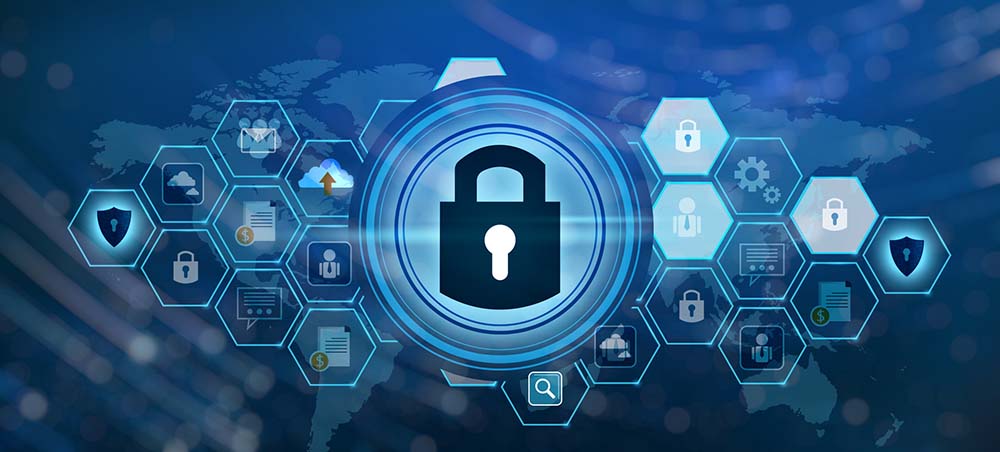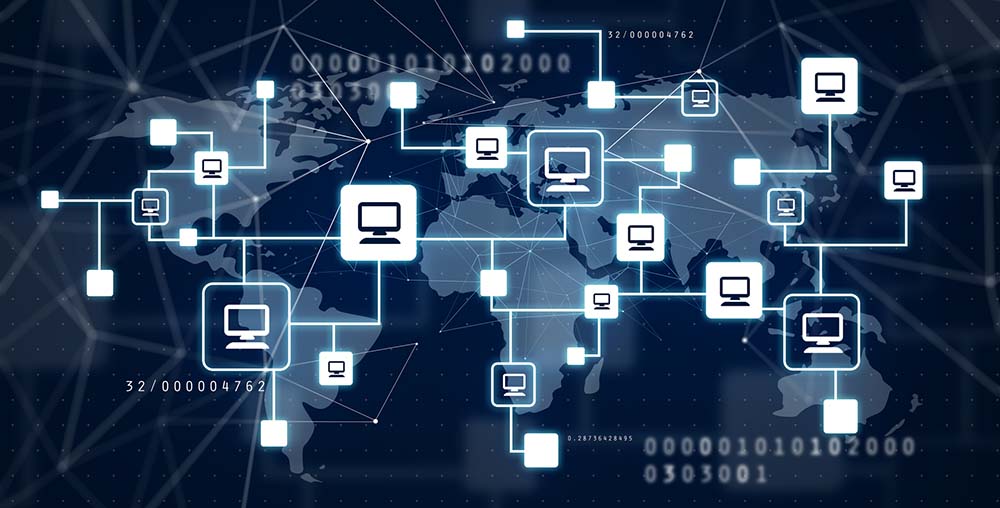The logistics industry aims to ensure the timely delivery of goods. It’s paramount to protect this business and its clients from cyber threats. The evolution of technology, particularly with the Fourth Industrial Revolution (4IR), has transformed business operations.
That said, the inclusion of drones and robots in logistics has enhanced order fulfilment and customer service. This is how they have streamlined product transfer, storage, and distribution. However, maintaining data integrity is crucial for optimal logistics performance.
The surge in cyber risk, stemming from advancements in digital technology, has brought light to the importance of robust cybersecurity measures in supply chain management.
Given that, supply chain firms need to improve their digital defences. They need to ensure regulatory compliance and maintain the trust of their customers and partners. This blog post aims to illuminate the path for supply chain businesses navigating the complex cybersecurity landscape. This read will offer insights into best practices, implementation strategies, and innovative partnership models that can turn potential vulnerabilities into opportunities for growth in cybersecurity within your supply chain business.
Let’s get to the brass tack…

Why Do Supply Chains Need Robust Cybersecurity Measures?
Supply chain industry business players need robust cybersecurity measures for several reasons:
Data Protection
Supply chains handle vast amounts of sensitive data. It includes personal information of customers, and even proprietary business information. It also includes detailed logistics data. So, cybersecurity measures are crucial to protect this data from unauthorized access or corruption.
Operational Continuity
The supply chain industry relies heavily on digital systems to manage logistics, inventory, transportation, and whatnot. Cyber attacks can disrupt these systems, leading to operational delays and severe reputation damage.
Compliance and Regulatory Requirements
Many industries within the supply chain industry are subject to strict regulatory requirements regarding data protection and privacy i.e. GDPR in Europe. Any failure to comply due to a cyber breach can result in hefty fines and legal consequences.
Third-Party Risks
Supply chains are inherently interconnected. They often involve multiple third-party vendors and partners. A cybersecurity breach in one part of the supply chain can have a cascading effect. So, it can impact multiple entities along the chain.
Intellectual Property Protection
Supply chains often involve the movement of goods that contain valuable intellectual property (IP). Cybersecurity measures are essential to safeguard this IP from industrial espionage and counterfeit production.
Customer Trust and Brand Reputation
Customers expect their data and products to be handled securely. A cyber attack that compromises customer data or disrupts service can lead to a loss of trust and damage a company’s brand reputation.
Evolution of Cyber Threats
Cyber threats are constantly evolving, with attackers finding new ways to exploit vulnerabilities in supply chain networks. Robust cybersecurity measures are necessary to keep pace with these threats and protect against sophisticated attacks.
Globalization and Complexity
As supply chains become more global and complex, the potential attack surface for cyber threats increases. This complexity requires comprehensive cybersecurity strategies covering all supply chain aspects, from manufacturing to delivery.
So, robust cybersecurity measures are vital for the supply chain industry to protect sensitive data and respond to the evolving landscape of cyber threats.
Examples of Cybersecurity Incidents in Supply Chains
NotPetya Attack on Maersk
In 2017, A.P. Moller-Maersk, the world’s largest shipping company, was hit by the NotPetya ransomware.
It led to a shutdown of IT systems across 76 ports. The attack also had a huge financial impact of about $300 million. This incident disrupted global shipping operations massively.
SolarWinds Software Supply Chain Attack
In 2020, a sophisticated cyber espionage campaign exploited the SolarWinds Orion software. It affected thousands of organizations, including government agencies and Fortune 500 companies.
This supply chain attack demonstrated how vulnerabilities in a single vendor’s product could compromise the security of numerous organizations.

More Supply Chain related Events & Stats
- The General Data Protection Regulation (GDPR) in Europe imposes fines of up to €20 million or 4% of annual global turnover for data breaches.
- According to a report by IBM, the average cost of a data breach in 2020 was $3.86 million globally, with certain industries like healthcare experiencing even higher costs. Supply chain attacks can amplify these costs due to the interconnected nature of supply chain entities.
- A study by Ponemon Institute found that 59% of companies experienced a data breach caused by a third-party vendor. This statistic highlights the risk that third-party vendors, often integral to supply chains, pose to cybersecurity.
- The World Intellectual Property Organization (WIPO) reports that industries with high IP intensity are particularly vulnerable to cyber espionage and IP theft.
- Supply chains in sectors like technology, pharmaceuticals, and automotive need robust cybersecurity to protect their innovations.
Cybersecurity Tips For Supply Chain Protection
It’s crucial to implement robust cybersecurity measures for supply chain businesses. The hidden security risks are inherent in their interconnected and often global operations.
Here are some of the best cybersecurity practices specifically designed for supply chain management:
Conduct Regular Risk Assessments:
Continuously identify and assess cybersecurity risks across the entire supply chain. This includes evaluating the security posture of third-party vendors and partners to understand where vulnerabilities might exist.
Implement Multi-Layered Security Measures
Adopt a layered security approach that includes firewalls, intrusion detection systems, encryption for data at rest and in transit, endpoint protection, and whatnot for secure inventory systems. This ensures that if one layer is breached, others still provide enough cover.
Establish Strong Access Controls
Implement strict access controls and the principle of least privilege. You must ensure that employees and third parties have only the access necessary for their role.
Use multi-factor authentication (MFA) to add an extra layer of security for accessing sensitive systems and data.
Secure Endpoints
With the proliferation of IoT devices in the supply chain, ensure you regularly update and monitor all endpoints for unusual activities.
Develop and Enforce Vendor Security Policies
Require all suppliers and vendors to comply with your security standards. Conduct regular audits and reviews of third-party vendors to ensure compliance with these policies.
Employee Training and Awareness
Train employees on cybersecurity best practices and the latest cyber threats. Phishing attacks are a common entry point for cybercriminals. So, it’s crucial to ensure employees can recognize and respond appropriately to suspicious emails.
Incident Response and Recovery Plan
Have a well-defined incident response plan that includes procedures for responding to and recovering from cybersecurity incidents. You should regularly test and update this plan to ensure effectiveness in a real-world scenario.
Monitor & Respond to Threats in Real-Time
Utilize security operations centres (SOCs) or cybersecurity services that can monitor your network 24/7. They should be able to detect threats in real time and respond to incidents swiftly to minimize damage.
Data Backups and Redundancy
Regularly back up critical data and system configurations to secure locations. This helps ensure business continuity during data loss due to a cyberattack.
If you implement these cybersecurity tips, you can significantly enhance the resilience of supply chain businesses against cyber threats.

Cybersecurity in the Supply Chain
Here are the key cybersecurity services that a cybersecurity firm can typically offer:
- Vulnerability Assessments and Penetration Testing
- Risk Management Consulting for Secure Inventory Systems
- Cybersecurity Strategy and Policy Development
- Managed Security Services (MSS)
- Incident Response and Forensics
- Security Awareness Training
- Regulatory Compliance Consulting
- Third-Party Vendor Risk Management
- Data Protection and Privacy Services
- Endpoint Protection Solutions
- Network Security Solutions
- Cloud Security Services
- Disaster Recovery and Business Continuity Planning
- Advanced Threat Detection and Response
- Blockchain Security Solutions
- Secure Software Development
Cybersecurity Solutions For Supply Chain Protection That You Can Rebrand as Yours
Post-Breach Recovery
A logistics company suffers a data breach, compromising sensitive customer data. After resolving the immediate crisis with cybersecurity services, they package their learnings into a “Crisis Recovery” service for other logistics firms.
Regulatory Compliance Update
An electronics manufacturer faces new regulatory requirements for data protection. They obtain compliance services in bulk, and then offer customized compliance packages to smaller manufacturers in their network.
Supply Chain Expansion
A retail chain expands internationally, introducing complex cybersecurity needs. They secure a comprehensive service package and later offer cybersecurity setup consultations to new local suppliers.
IoT Integration
An automotive supplier integrates IoT devices into their manufacturing process. So, they need enhanced cybersecurity for secure inventory systems. They resell IoT-specific cybersecurity services to other suppliers in the automotive industry.
Merger and Acquisition
During a merger, a pharmaceutical company needs to ensure the combined entity’s cybersecurity posture is robust. They acquire bulk cybersecurity assessments and integration services. Later, they offer these as a service to other companies undergoing mergers.
Cloud Transition
A food distributor moves its supply chain management to the cloud and secures services for cloud security. Recognizing the trend, they bundle their insights and resell cloud migration and security services to smaller distributors.
Remote Work Shift
A shipping company shifts to remote work and now requires secure remote access solutions. After implementing these services, they package the solution as a “Remote Work Security Suite” for other shipping companies.
Third-Party Risk Management Program
A fashion retailer develops a comprehensive program to manage third-party risks with external cybersecurity help. They then offer this program as a service to other retailers and their suppliers.
Smart Warehouse Implementation
A logistics firm upgrades to smart warehouses. Now, they require advanced cybersecurity. They then provide consultancy and services to smaller firms looking to modernize their warehouses securely.
Blockchain Adoption
A supply chain management firm implements blockchain for traceability. They may need specialized security services. Once they have mastered the security aspects, they resell blockchain security consultancy to similar firms exploring blockchain.
Rebrand Our Cybersecurity Services to Protect Supply Chain: A B2B Partnership with WME
Let’s take the scenario of a fashion retailer developing a comprehensive Third-Party Risk Management Program. They then decide to resell this program as a service to other retailers and their suppliers.
We’ll call this fashion retailer “StyleCo,” for the sake of convenience, and suppose they partner with a cybersecurity service provider, “WME” to achieve this.
The Partnership Overview
StyleCo recognizes the critical need for robust third-party risk management within its supply chain as it realizes its vast network of suppliers and partners is weak.
They decide to address this challenge head-on, StyleCo turns to WME.
Initial Engagement
StyleCo engages WME to develop and implement a Third-Party Risk Management Program. The program is customized to StyleCo’s specific needs and challenges. In this initial phase, WME’s services include vulnerability assessments, risk analysis, policy development, and the implementation of monitoring systems.
Bulk Purchase Agreement
StyleCo recognizes an opportunity to extend these vital services to other players in the industry. They negotiate a bulk purchase agreement with WME. This agreement allows StyleCo to buy cybersecurity services at a discounted rate. Basically, they are intending to repackage and resell these services to other retailers and their suppliers.
Reseller Model
StyleCo establishes a new business unit dedicated to offering Third-Party Risk Management as a service.
This service line leverages the methodologies and expertise developed in partnership with WME. They build on their hands-on experience with the specific needs of the fashion retail sector.
Implementation and Support
For each client that StyleCo onboards, WME provides backend support and resources. They ensure a high standard of service delivery and offer access to their expert consultations, which StyleCo integrates into its offerings.
Revenue Sharing and Growth:
The partnership includes a revenue-sharing model where WME receives a percentage of the revenue from the services resold by StyleCo. This incentivizes WME to provide ongoing support and ensures that both parties are invested in the success of the reseller program.
If you follow such a partnership model, you can enhance your cybersecurity posture and create new revenue streams while contributing to the overall resilience of your industry’s supply chain against cyber threats.

Wrapping it Up:
In conclusion, the complex nature of modern supply chains makes robust cybersecurity measures critical for operational integrity and business continuity.
As we’ve explored, from the initial identification of vulnerabilities to the implementation of comprehensive cybersecurity strategies, it’s a multifaceted journey. The examples provided illustrate the complex landscape of threats to supply chain businesses.
The partnership model between a supply chain entity and a cybersecurity service provider like WME pioneers an approach to securing their operations and extending these essential services to the broader industry ecosystem.
This model exemplifies other businesses looking to enhance their cybersecurity posture while simultaneously creating value-added services for their industry peers.
In essence, the future of supply chain security hinges on collaboration, and the strategic outsourcing of cybersecurity expertise.
WME: A Premier Cybersecurity Partner for B2B Services
WME stands out as a leading cybersecurity service provider for the B2B sector. We offer a comprehensive suite of cybersecurity solutions and a customer-centric approach in our security & compliance advisory services. We are uniquely positioned to address the complex security challenges faced by B2B companies.
Here’s why WME could be the best cybersecurity choice for B2B Supply Chain firms:
- Industry-Specific Expertise
- Scalable Services
- Advanced Technology and Innovation
- Blockchain for Enhanced Security
- Comprehensive Cybersecurity Framework
- Partnership and Collaboration
- Knowledge Sharing and Training
- Flexibility and Customer-Centric Service
- Dedicated Support
In a world where cybersecurity threats are constantly evolving, supply chain companies require a dependable cybersecurity partner that understands their specific challenges. The firm should be able to provide advanced and flexible solutions to address them.
WME embodies this ideal quite reliably. We make ourselves a top choice for B2B supply chain organizations looking to strengthen their operations and protect their clients and data with confidence.
Windows Management Experts
Now A Microsoft Solutions Partner for:
✓ Data & AI
✓ Digital and App Innovation
✓ Infrastructure
✓ Security
The Solutions Partner badge highlights WME’s excellence and commitment. Microsoft’s thorough evaluation ensures we’re skilled, deliver successful projects, and prioritize security over everything. This positions WME in a global tech community, ready to innovate on the cloud for your evolving business needs.







